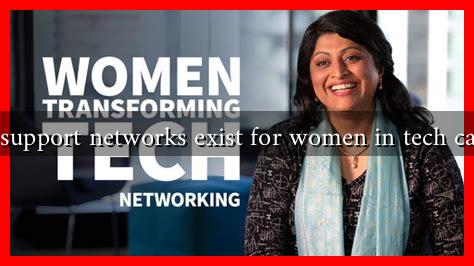-
Table of Contents
What Support Networks Exist for Women in Tech Careers?
In recent years, the tech industry has made strides toward inclusivity, yet women remain underrepresented in many tech roles. According to a report by the National Center for Women & Information Technology, women held only 26% of computing jobs in 2020. To combat this disparity, various support networks have emerged to empower women in tech careers. This article explores these networks, their significance, and how they contribute to the professional growth of women in technology.
The Importance of Support Networks
Support networks play a crucial role in fostering a sense of belonging and community among women in tech. They provide resources, mentorship, and opportunities for networking, which can be vital for career advancement. Here are some key benefits of these networks:
- Mentorship: Access to experienced professionals who can provide guidance and advice.
- Networking: Opportunities to connect with peers and industry leaders.
- Skill Development: Workshops and training sessions to enhance technical and soft skills.
- Advocacy: Initiatives aimed at promoting gender diversity in tech.
Prominent Support Networks for Women in Tech
Several organizations and initiatives have been established to support women in technology. Here are some of the most notable:
1. Women Who Code
Founded in 2011, Women Who Code is a global nonprofit organization dedicated to inspiring women to excel in technology careers. With over 230,000 members worldwide, the organization offers:
- Networking events and meetups.
- Technical workshops and coding boot camps.
- Job boards and career resources.
Women Who Code also provides a mentorship program that pairs experienced professionals with those looking to advance their careers. For more information, visit their website at Women Who Code.
2. Girls Who Code
Girls Who Code focuses on closing the gender gap in technology by encouraging young girls to pursue computer science. The organization offers:
- Summer immersion programs for high school girls.
- Clubs in schools to teach coding and computer science.
- Resources for educators to inspire the next generation of female tech leaders.
By targeting younger audiences, Girls Who Code aims to create a pipeline of future women in tech. More details can be found at Girls Who Code.
3. AnitaB.org
AnitaB.org is named after computer scientist Anita Borg and is dedicated to promoting the advancement of women in computing. The organization offers:
- Annual conferences such as the Grace Hopper Celebration of Women in Computing.
- Research and resources on gender diversity in tech.
- Networking opportunities through local chapters.
AnitaB.org also runs a program called the “Systers” mailing list, which connects women in tech for support and collaboration. For more information, visit AnitaB.org.
4. Tech Ladies
Tech Ladies is a community that connects women with job opportunities in tech. The organization provides:
- A job board featuring roles from companies committed to diversity.
- Networking events and workshops.
- A supportive online community for sharing experiences and advice.
Tech Ladies aims to empower women to find fulfilling careers in technology. Learn more at Tech Ladies.
Case Studies: Success Stories from Support Networks
Many women have benefited from these support networks, leading to successful careers in tech. For instance, a member of Women Who Code shared how the organization’s mentorship program helped her transition from a junior developer to a lead engineer within two years. Similarly, participants in Girls Who Code have gone on to pursue degrees in computer science and secure internships at major tech companies.
Conclusion
Support networks for women in tech are essential for fostering diversity and inclusion in the industry. Organizations like Women Who Code, Girls Who Code, AnitaB.org, and Tech Ladies provide invaluable resources, mentorship, and networking opportunities that empower women to thrive in their careers. As the tech landscape continues to evolve, these networks will play a pivotal role in shaping the future of women in technology, ensuring that they not only enter the field but also excel and lead.
By leveraging these support systems, women can navigate the challenges of the tech industry and contribute to a more equitable and innovative future.

